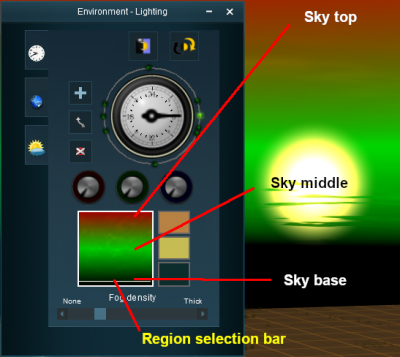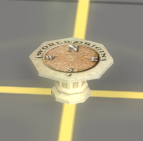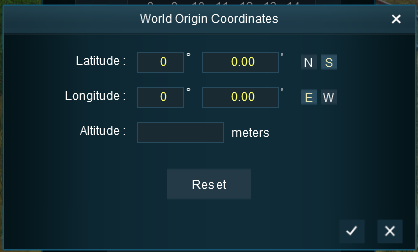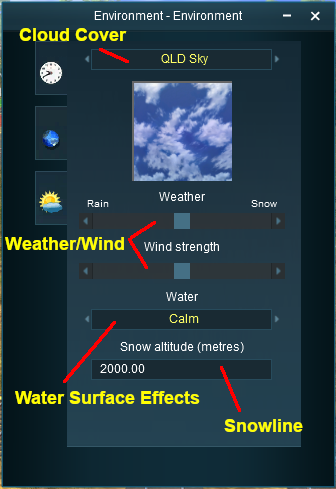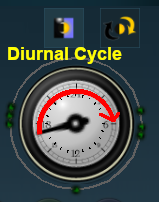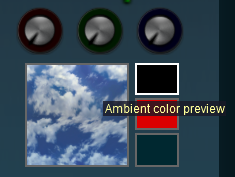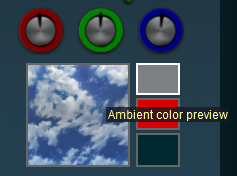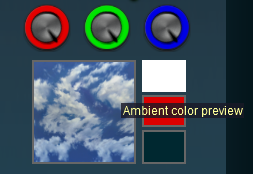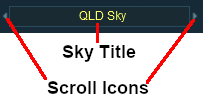|
|
| Line 1,060: |
Line 1,060: |
| | <td>[[image:EnvironmentMoveControlPoint.PNG|link=]]</td> | | <td>[[image:EnvironmentMoveControlPoint.PNG|link=]]</td> |
| | <td> | | <td> |
| − | <table width=800> | + | <table bgcolor=#000000 cellpadding=2> |
| − | <tr>
| + | |
| − | <td colspan=3>
| + | |
| − | ----
| + | |
| − | </td>
| + | |
| − | </tr>
| + | |
| | <tr valign="top"> | | <tr valign="top"> |
| − | <td width=50>[[image:Steps.PNG|link=]]</td> | + | <td> |
| − | <td width=350><span style="font-size: 17px;">'''Steps:'''</span> | + | <table bgcolor=#ffffff cellpadding=2> |
| − | <table> | + | <tr valign="top"> |
| | + | <td colspan=2><span style="font-weight: 700; font-size: 15px;">Steps:</span> To move a control point:-</td> |
| | + | </tr> |
| | <tr valign="top"> | | <tr valign="top"> |
| | <td width=25>[[image:DotPoint1.JPG|link=]]</td> | | <td width=25>[[image:DotPoint1.JPG|link=]]</td> |
| Line 1,086: |
Line 1,083: |
| | <td><span style="font-weight: 700; font-size: 15px; background-color: lightcyan;">Left Click</span> on the ring at the spot where the point is to be placed</td> | | <td><span style="font-weight: 700; font-size: 15px; background-color: lightcyan;">Left Click</span> on the ring at the spot where the point is to be placed</td> |
| | </tr> | | </tr> |
| − | </table></td> | + | </table> |
| | + | </td> |
| | + | </tr> |
| | + | </table> |
| | + | </td> |
| | </tr> | | </tr> |
| | </table> | | </table> |
| Line 1,107: |
Line 1,108: |
| | <td>[[image:DotPoint.JPG|10px|link=]]</td> | | <td>[[image:DotPoint.JPG|10px|link=]]</td> |
| | <td>The button can be deactivated by a <span style="font-weight: 700; font-size: 15px; background-color: lightcyan;">Left Click</span> on it again or by selecting another button.</td> | | <td>The button can be deactivated by a <span style="font-weight: 700; font-size: 15px; background-color: lightcyan;">Left Click</span> on it again or by selecting another button.</td> |
| − | </tr>
| |
| − | </table>
| |
| − | </td>
| |
| | </tr> | | </tr> |
| | </table> | | </table> |
Revision as of 11:21, 22 August 2023
| The information in this Wiki Page applies to TANE, TRS19, Trainz Plus and TRS22. A video tutorial specific to setting the environmental controls in TRS19, Trainz Plus and TRS22 can be found at TRS19 Environment and Lighting Tutorial |
Loading and Saving Environmental Settings
 |
A newly created Route will have its environmental settings set to their default values |
 |
A newly created Session will have its environmental settings set to those of the Route |
 |
Where the Route and Session have different saved environmental settings, those in the Session will be used |
| In Routes |
 |
When you create a new Route, or load an existing Route with NO saved Environmental settings, then the settings used will be the default values. |
 |
If you change any of the Environmental settings of a Route then you must also edit the Route (e.g. change or edit a Route asset or feature) and save it for those settings to become part of the Route. |
| In Sessions |
 |
When you create a new Session, or load an existing Session with NO saved Environmental settings, then the Session will use the settings that are part of the Route. These could also be the default settings. |
 |
When you load an existing Session with saved Environmental settings, then the settings from the Session will take priority over any settings that have been saved in the Route. |
 |
If you change any of the Environmental settings of a Session then you must also edit the Session (e.g. change or edit a Session asset or property) and save it for those settings to become part of the Session. |
 |
Because a Session can have its own environmental settings you are able to create Sessions set in different conditions - for example:-
- separate summer and winter sessions or for any season - see the
 Set Date and Set Date and  Set World Origin sections below Set World Origin sections below
- an early morning winter fog Session - see the
 Fog Control section below Fog Control section below
- a spring rain shower Session - see the
 Set the Weather section below Set the Weather section below
- a cool overcast autumn (fall) Session - see the
 Set the Sky section below Set the Sky section below
|
|
The Environment Tool
| Open the Environment Tools Editor from the Surveyor Main Menu in TANE as shown below left or from the Surveyor Edit Menu in TRS19 and later versions as shown below right. |
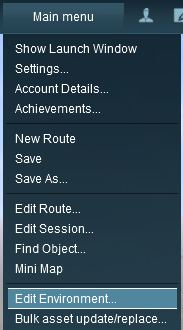 |
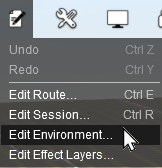 |
In all versions select Edit Environment |
This will open the Environment Properties Window as shown below.
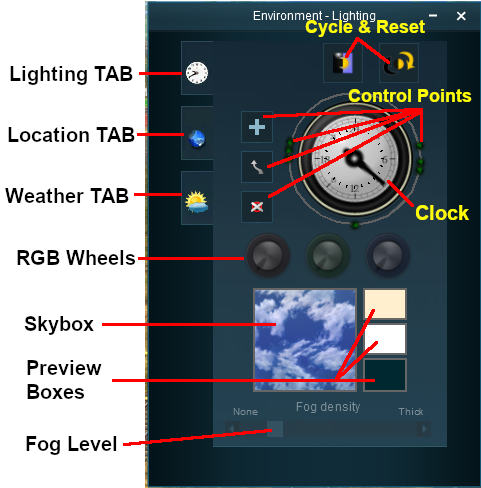
|
TRS19 and later Trainz versions have an additional control that adjusts the lighting level, as shown below
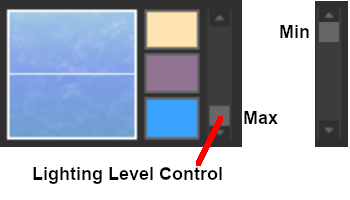
|
Lighting
 |
The Lighting Tools control the ambient, sun and water colours. This tool tab is opened by default whenever the Environment Editor is opened |
Light and Time
 |
The dial shown is a 24 hour clock that sets the lighting conditions at selected times of the day and night |
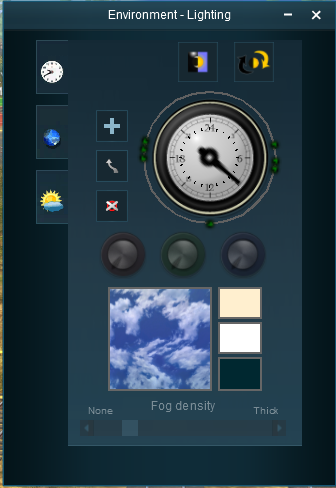 |
The Time of Day
 |
You can select a specific time by dragging the clock pointer arm to the corresponding position on the clock dial. |
 |
In Trainz Plus the Time of Day can be changed in Driver using the Session Options Palette |
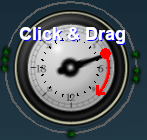 |
The scene shown in Surveyor will display the lighting conditions that correspond to the time shown on the clock |
|
Setting the Lighting Conditions
Colour Control Points
The ring around the dial contains a number of green dots.
 |
Each dot is a Control Point that sets the specific Red, Green and Blue colour values, and other lighting features, at the time shown on the clock |
 |
Each of the RGB colour value can be altered by dragging its needle point to a new position around the dial |
| Steps: To alter the colour settings for a particular time control point:- |
 |
select an RGB colour wheel and Left Click and Drag its pointer to a new position |
 |
To set all 3 colour wheels to the same value Shift + Left Click and Drag any one of the pointers to the new value |
|
|
Types of Lighting
 |
Notes:
| Each control point stores the RGB values for three different types of lighting in the scene. |
 |
The Ambient Colour which is the directional lighting and mostly affects the hue of buildings and other scenery objects |
 |
The Sun Colour which affects the colour of the sunlight and mostly affects the hue of the terrain |
 |
The Water Colour which affects the colours reflected by water surfaces |
|
|
The 3 boxes below the colour wheels and next to the Sky box show the colour effects created for each type of lighting at the selected time.
Ambient Colour
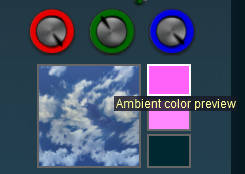 |
| Steps: To set the Ambient Color:- |
 |
Left Click on the control point for the time that you want to edit |
 |
Left Click on the top box of the three. This is the Ambient Colour.
The 3 dials will show the RGB values for the Ambient Colour at the selected time and the Ambient color preview box will show the colour produced by the RGB settings |
 |
You can then change the RGB settings for the Ambient Colour by either:-
 |
Left Click and Drag the pointers to new positions on the coloured rims of each dial, OR |
 |
Left Click on a new position on the coloured rims of each dial |
|
|
|
Sun Colour
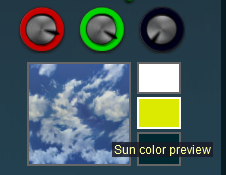 |
| Steps: To set the Sun Colour:- |
 |
Left Click on the control point for the time that you want to edit |
 |
Left Click on the middle box of the three. This is the Sun Colour.
The 3 dials will show the RGB values for the Sun Colour at the selected time and the Sun color preview box will show the colour produced by the RGB settings |
 |
You can then change the RGB settings for the Sun Colour by either:-
 |
Left Click and Drag the pointers to new positions on the coloured rims of each dial, OR |
 |
Left Click on a new position on the coloured rims of each dial |
|
|
|
Water Colour
 |
This Water Colour control only affects the colour of the water created using the Add Water tools (for Classic or Legacy Water) in the Topology menu (the F1 key in Surveyor Classic). It has no effect on the colour of water created as Water Layers used in TRS19 SP4 and later versions. |
|
Water Effect Layer
| In TRS19 SP4 and later a new method of adding water to a route was introduced - as an Effect Layer. The original method, now called Legacy Water, can still be used in a route but it is NOT recommended that both water methods (Legacy and Effect Layer) are used in the same route. |
TRS19 SP4
The water colour for the Water Effect Layer is set by altering the colour for the Top Skybox.
| Steps: To set the Water Colour in TRS19 SP4:- |
 |
select a time control point for a specific time of day |
 |
Left Click in the top region of the Skybox - a while line or bar will appear across the region
|
 |
Set the RGB color wheels for the Top Skybox region for the selected time |
 |
Repeat for each time control point as required (the Water Effect Layer can have its colour changed at different times of the day/night)
|
|
See  The Skybox below for more details.
The Skybox below for more details.
Trainz Plus and TRS22
| The major changes to water introduced in these versions are:- |
 |
multiple water layers can be added to a route |
 |
each water layer has its own colour controls built into its properties (i.e. not part of the Skybox colours) |
Mixing Colours
 |
Notes:
Getting the "right colours" can be more of an art than a science. To set the exact colour you want means mixing the correct quantities of Red, Green and Blue. Each of these colours has 256 different values from 0 to 255 that, when combined, produce over 16 million different possible colours - but many monitors and most eyeballs will not be able to tell the differences between many of those 16 million colours.
|
|
 |
Setting all three colours to the same values will produce monotones from Black to White with 254 different shades of gray between those two tones.
 |
You can quickly set all three dials to the exact same value by a Shift Left Click on a dial position on any one of the three dials. |
Note that in the examples below, the "tyre" around each dial shows the exact quantity of colour that is being added. |
|
Example 2: Setting a Water Colour
|
| Creating a colour suitable for water (RGB values are approximate) |
|
Lighting Level Control
| TRS19 and later Trainz versions have an additional control that is placed next to the Ambient, Sun and Water colour boxes. This sets the overall brightness or lighting level for each control point. |
Resetting the Lighting Conditions
 |
All the lighting colour settings can be reset back to the Trainz default colours. |
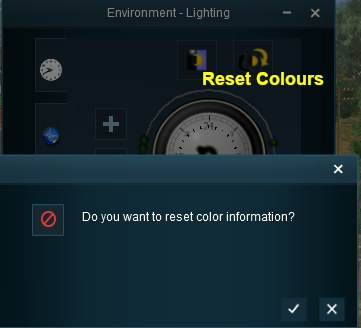 |
| Steps: To reset ALL the lighting conditions to their default values:- |
 |
Left Click on the Color Reset button, then either:-
 |
Left Click on the  icon to accept the reset, OR icon to accept the reset, OR |
 |
Left Click on the  icon to reject the reset icon to reject the reset |
|
|
|
Adding a New Control Point
 |
New control points can be added to the clock dial |
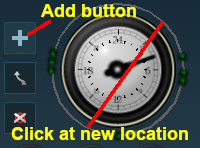 |
| Steps: To add a new time control point:- |
 |
Left Click on the Add button  |
 |
Left Click on the ring at the place where the new control point is to be located |
|
|
 |
Notes:
 |
the Add button will remain active (selected) until it is deactivated so each Left Click can add another control point. |
 |
The button can be deactivated by a Left Click on it again or by selecting another button. |
|
|
|
Deleting a Control point
 |
Existing control points can be deleted |
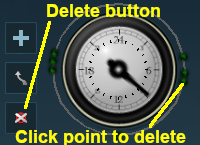 |
| Steps: To delete an existing time control point:- |
 |
Left Click on the Delete button  |
 |
Left Click on the control point to be deleted |
|
|
 |
Notes:
 |
the Delete button will remain active (selected) until it is deactivated so each Left Click can delete another control point. |
 |
The button can be deactivated by a Left Click on it again or by selecting another button. |
|
|
|
Moving a Control point
 |
Existing control points can be moved |
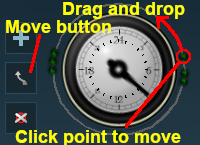 |
| Steps: To move a control point:- |
 |
Left Click on the Move button  |
 |
Left Click on the control point to be moved and either:-
 |
Left Click and Drag the point to its new position around the ring, OR |
 |
Left Click on the ring at the spot where the point is to be placed |
|
|
|
 |
Notes:
 |
the Move button will remain active (selected) until it is deactivated so each Left Click and Drag can move another control point. |
 |
The button can be deactivated by a Left Click on it again or by selecting another button. |
|
|
|
The Skybox
 |
The Skybox sets the sky colours in three different regions of the sky at the selected time of day, as shown in the extreme example below |
Fog Control
 |
This controls the level of "fog" in the scene |
|
|
 |
Note:
Each control point also stores the Fog settings for that particular time
|
 |
Increasing the fog level can also increase the brightness level (real fog does scatter light causing the background to appear brighter). In TANE you may need to reduce the RGB levels to compensate. In TRS19/Trainz Plus/TRS22 you can reduce the Brightness level to compensate.
|
|
|
|
Location
 |
The Location Tools control the geographic and date (season) data for the Route and Session. Left Click on the Location tab icon to open the Location Tool Controls |
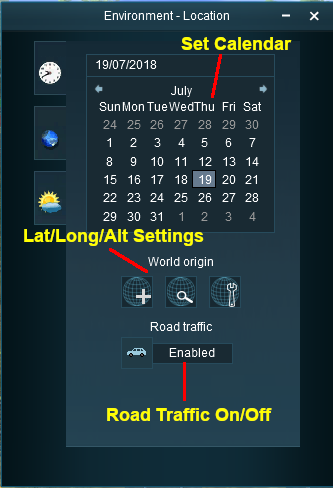 |
Set Date
| The top section is a standard calendar selection tool that allows you to set the month and the day of the month. The only effect this has in Trainz is to set, with the geographic coordinates, the season of the year. |
|
 |
Settings:
Set the Month by scrolling left or right through the 12 month calendar
Set the Day (if required) by a Left Click on the date in the selected month
|
|
|
|
 |
Notes:
It is possible to set a particular Year by scrolling through all the 12 month calendars to reach the required year BUT this will have no effect on the operation of the Route or Session. Setting the year to 1900, for example, will not recreate an early 20th Century railroad. Time periods have to be recreated by carefully selecting scenery and rolling stock assets that belong to that particular time period.
|
|
 |
The entered date can be saved in the Route, the Session or both depending on whether you are editing the Route or the Session or both |
 |
You must make a change to an object in a Route Layer or a Session Layer for the date change to be recorded as part of the Route or the Session (or both)
|
|
 |
 |
Sick of it always being winter in your Session during winter? Want it to always be summer instead?
Set the date to a Summer month. This will be saved when you edit and save the Session BUT make sure that you have set the World Origin to the correct hemiphere. |
 |
In Trainz Plus the date and therefore the Season can also be changed in Driver using the Session Options Palette |
|
|
Set World Origin
The middle section is the World Origin Tool and sets the geographic location, including the altitude, of the route using a World Origin marker that is only visible in Surveyor.
 |
Setting the World Origin does NOT set regional features such as which side of the road the cars drive on. Use the Route Editor - Region setting for that |
 |
The World Origin is always part of a Route, not part of a Session |
| Once it has been placed, the marker can be moved by a Left Click and Drag or a Left Click. After adding the marker it should be edited to add geographic data. |
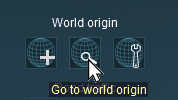 |
Left Click on the Go to world origin icon to move the Surveyor screen so that it is centred on the World Origin marker.
|
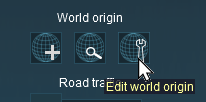 |
Left Click on the Edit world origin icon to set or edit the World Origin data. See Editing the World Origin below.
|
Editing the World Origin
Deleting the World Origin
 |
There is no delete button for the World Origin marker, but you can still delete it |
|
 |
Steps:
- Open the Objects Tool in the Surveyor screen
- Select the Delete tool
- Left Click on the World Origin marker
|
|
|
 |
Notes:
All routes MUST have a World Origin.
If you delete the marker then the World Origin will be hidden and will take the default coordinates of latitude 52.45 N, longitude 13.3 E, altitude 0 metres - which places it in Berlin(??).
|
|
|
Traffic Control
 |
This tool simply turns the road traffic ON and OFF |

 |
|
 |
Settings:
- Left Click on the car icon to enable and disable traffic
|
|
|
Weather and Water
 |
The Weather and Water Tools control the weather (sky, weather type, wind, snow) and water surface data for the Route and Session. Left Click on the Weather and Water tab icon to open the Weather and Water Tool Controls |
 |
To set the Water Colour, refer to the  Setting the Lighting Conditions section above Setting the Lighting Conditions section above |
Wind Strength
 |
This setting only effects SpeedTrees |
|
 |
Settings:

Move the slider to set the wind strength between zero (left) and maximum (right)
|
|
Set the Water Surface
 |
This sets the water surface effects for Legacy Water only. It does not apply to Water Effect Layers |
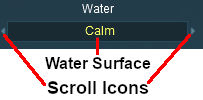 |
|
 |
Settings:
- Left Click on the Water Surface to select from a drop down list of surface effects, or
- Scroll through the list by using the Scroll icons
|
|
|
Set the Snow Altitude
 |
This sets the altitude at which objects built with snow effects will display snow. It has no effect on objects created without this feature |
Trainz Wiki
 |
More Tutorials and Guides to Using Trainz
|
This page was created by Trainz user pware in July 2018 and was last updated as shown below.




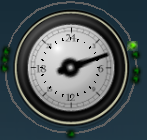


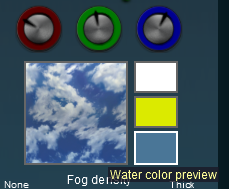
The Skybox below for more details.




